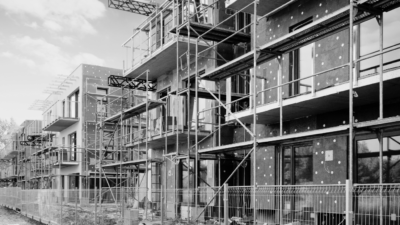On World Refugee Day, June 20, the Home Office announced a new scheme designed to resettle up to 6,000 refugees in UK homes by 2021, according to a recent press release from the UN Refugee Agency, UNHCR.
The new programme plans to increase the flexibility and ethnic diversity of UK resettlement, which is set to effectively respond to current global resettlement needs.
The Government announced that it would welcome asylum seekers from the Middle East and North Africa, granting them entry and, ultimately, permanent settlement, according to the press release.
Property shortage
This comes at an interesting time as there is now currently a shortage in housing, partly due to the growing volume of migration to the UK according to Migration Watch UK who supported their statement with a statistic released by The Office for National Statistics (ONS).
The statistic projected the future growth of the number of households in the UK, covering the period 2016 to 2041.
The statistic estimated that if net migration to England continued at the level of 214,500 each year – it has averaged 208,000 in the last decade, but was 218,000 in 2016 – then the market would need 190,000 new properties to keep up with the high demand. Half of this demand will be due to immigration.
Lower house prices
Immigration also lowers house prices in various areas, according to an Economic Journal article from labour economist and academic, Filipa Sá.
An increase in immigration equal to 1 per cent of the initial local population, leads to a 1.7 per cent decline in property value. Therefore, new immigration to an area may lower the average local income and decrease housing demand as well as supply, Ms Sá wrote.
Theresa May confirmed that housing demand in the UK was partly caused by immigration, stating: “Without the demand caused by mass immigration, house prices could be 10 per cent lower over a 20-year period.”
However, Ms May eliminated the idea of immigration being the biggest strain on housing, adding: “Better-off migrants tend to form fewer households, as compared to the indigenous population, [living] disproportionately in private renting… and at higher densities.”
Sajid Javid, Home Secretary, commented: “It’s vital we continue to do all we can to help the world’s most vulnerable. Under our new scheme, thousands more people fleeing conflict and persecution will have the opportunity to build a new life in the UK.”
International cooperation
Rossella Pagliuchi-Lor, UK representative for the UNHCR, added that she believed this was a strong signal of international support for refugees and it places the UK among the leading countries for resettlement.
Ms Pagliuchi-Lor concluded: “We hope this serves as a signal for other countries to provide more routes to safety for those forced to flee as the international community moves to make the Global Compact on Refugees a reality.”

























Comments